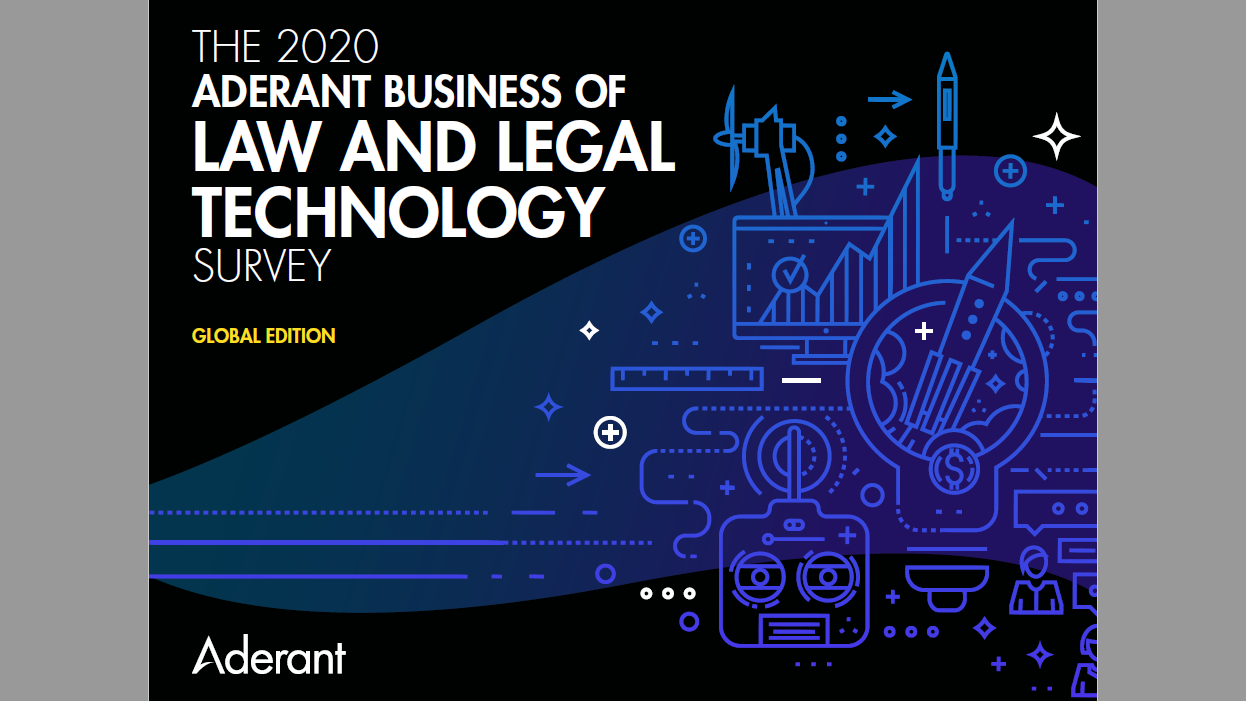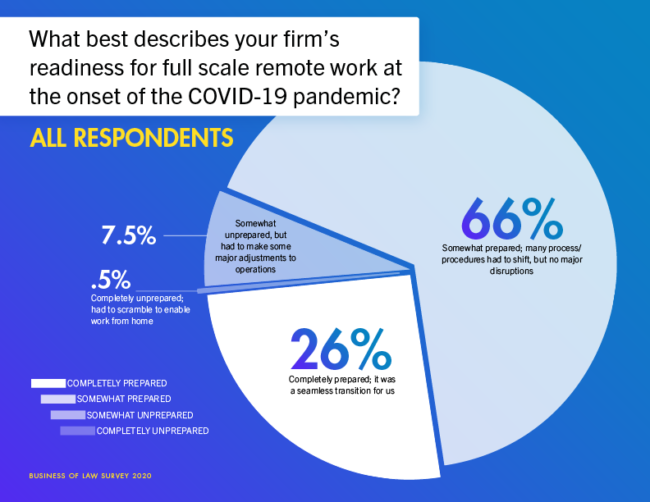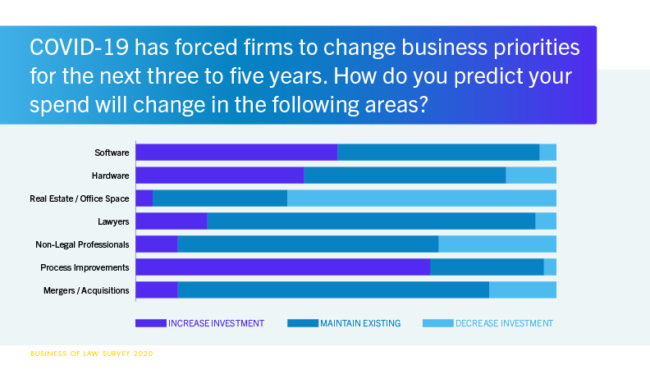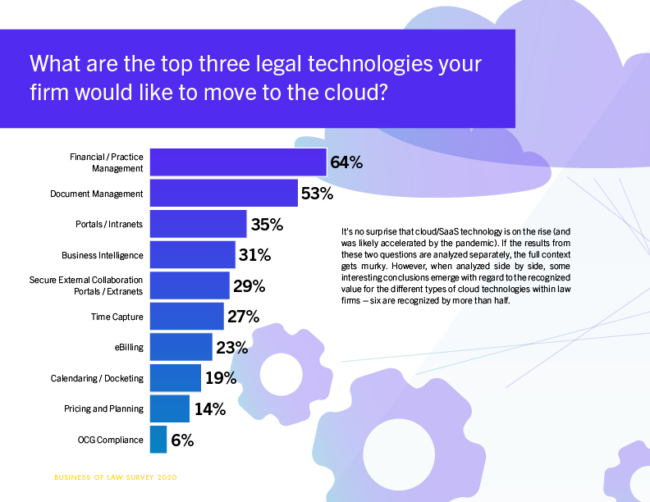Ninety-two percent of law firms worldwide say they were completely or somewhat prepared for full-scale remote work at the pandemic’s onset, a survey released this morning finds.
Even so, most firms plan to increase their budgets for technology and process software and adopt more cloud-based technologies, the survey reports.
Published for the fourth consecutive year by Aderant, a global provider of business management software for law firms, the Business of Law and Legal Technology Survey was conducted during August and September 2020.
The survey drew responses from 201 business and legal professionals at firms worldwide, ranging in size from 25 to more than 500 attorneys.
This year’s survey had 33% more respondents than the 2019 survey and more responses from Europe, the Middle East, Africa and Asia-Pacific.
For the second year straight, respondents ranked operational efficiency as the top challenge facing their firms, followed by technology adoption and cybersecurity. Also ranked as top challenges were retaining business, pricing pressure and change management.
On the question of preparedness for remote work due to the pandemic, 26% of firms described themselves as having been “completely prepared” and 66% said they had been “somewhat prepared.”
Of the remainder, 7.5% said they were “somewhat unprepared” and had to make minor adjustments to operations. Only .5% said they were completely unprepared and had to scramble to enable work from home.
The survey asked firms about their investment priorities over the next three-to-five years. Nearly three-quarters (70%) said they will spend more on process improvements and roughly half (48%) plan to spend more on software.
In contrast, almost two-thirds (64%) plan to spend less on real estate and office space.
A common belief regarding the pandemic’s impact on law firms is that they will move more of their technologies to the cloud. While the survey bears out interest in moving to the cloud, it suggests the execution may be slower in coming.
When asked the top technologies firms would like to move to the cloud, the top-ranked, at 64%, was financial/practice management. However, just 38% said they actually plan to move their practice management to the cloud within the next year or two. More than half (55%) said they have no plans in the foreseeable future to move practice management to the cloud.
Other technologies firms say they most want in the cloud are document management (53%), portals/intranets (35%), business intelligence (31%), secure external collaboration (29%), time capture (27%), and e-billing (23%).
The survey asked several questions about law firm billing, including what firms consider the most difficult aspects of billing and invoicing.
The two aspects ranked most difficult were e-billing requirements (54%) and compliance with outside counsel guidelines (43%).
Firms were also asked the percentage of their invoices they submit through e-billing systems. Just 12% of firms submit more than half their invoices through e-billing systems, while 40% submit between 25-50% of their invoices and 41% submit less than 25%.
In a concluding section of the survey, Aderant says that the pandemic opened Pandora’s Box for law firms, mostly in the form of operational inefficiencies that firms had overlooked for years.
Yet the pandemic also forced firms to face their inefficiencies and to begin a phase of massive technology adoption, the survey suggests.
“The year 2020 was pivotal for law firms and technology,” Aderant concludes. “Under duress, firms transformed themselves and began a modernization process that will continue for many years to come.”
Download the full report from this page.
 Robert Ambrogi Blog
Robert Ambrogi Blog


